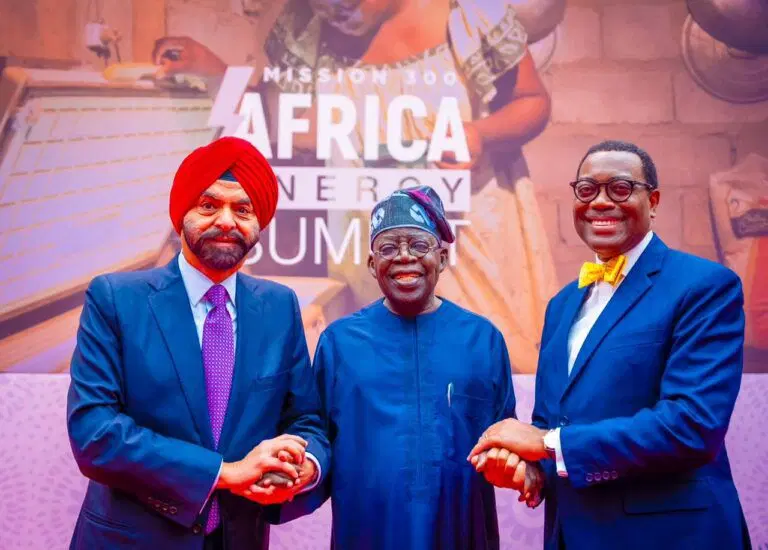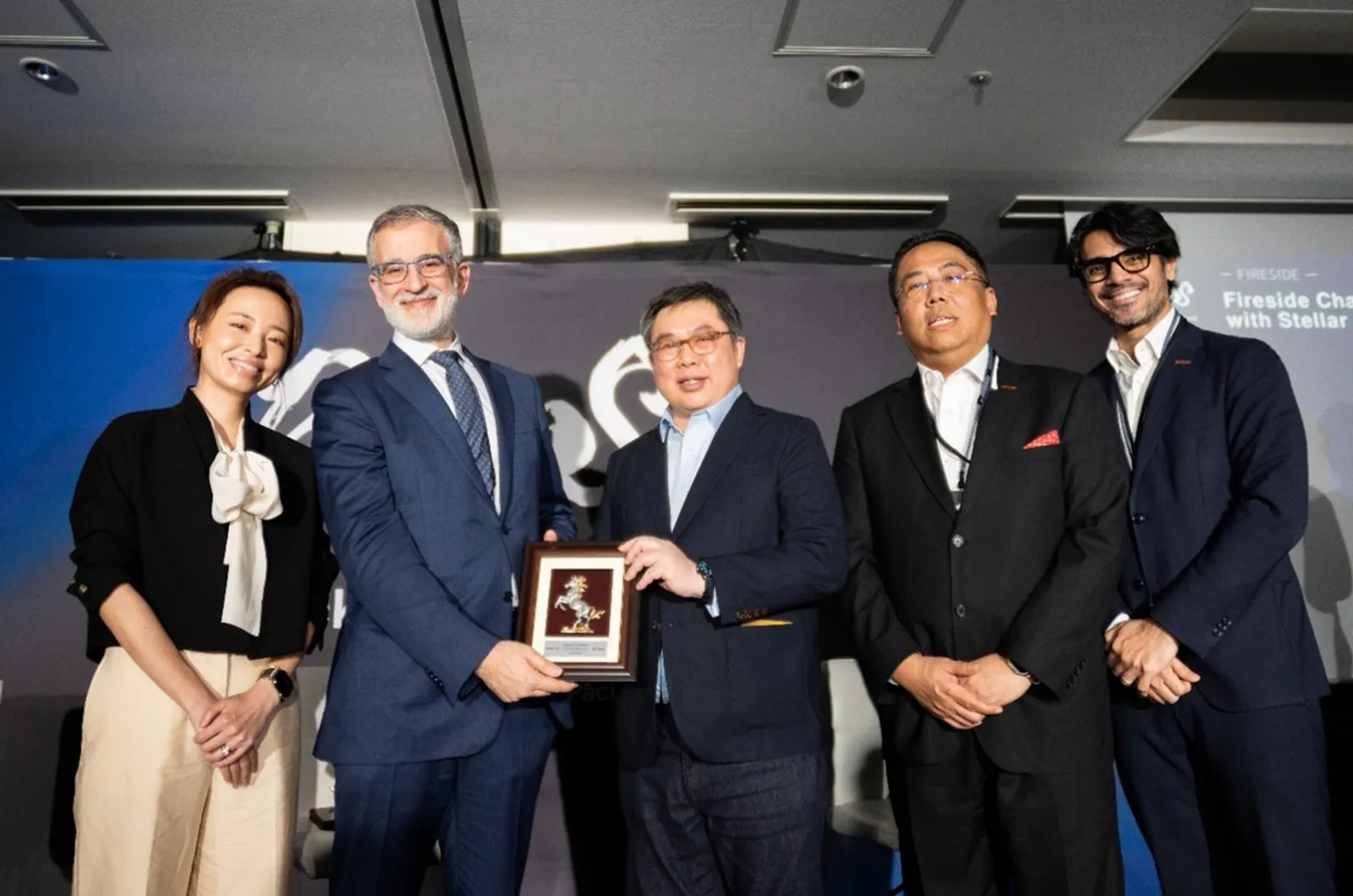Introduction: A Major Step Toward Energy Access
The Nigerian government has secured a $1.1 billion loan from the African Development Bank (AfDB) to provide electricity to 5 million people by the end of 2026. This funding is part of a broader effort to tackle Nigeria’s energy access deficit, which has long hampered economic growth and social development.
This development was announced by Bayo Onanuga, Special Adviser to the President on Information and Strategy, during the Mission 300 Africa Energy Summit in Dar es Salaam, Tanzania. President Bola Ahmed Tinubu, through his representative Minister of Power, Adebayo Adelabu, reiterated his administration’s commitment to prioritizing energy access for millions of Nigerians.
Additionally, Tinubu highlighted that the AfDB has committed another $200 million investment in the Nigeria Electrification Project, which aims to provide electricity to 500,000 people by the end of 2025.
Understanding Nigeria’s Energy Crisis
Despite being Africa’s largest economy and one of the world’s leading oil producers, Nigeria has struggled with chronic power shortages for decades. Several factors have contributed to the country’s electricity deficit, including:
- Aging Infrastructure: Much of Nigeria’s power generation and distribution infrastructure is outdated, leading to frequent blackouts and high transmission losses.
- Underinvestment in Renewable Energy: Despite abundant solar, wind, and hydro resources, Nigeria has lagged in adopting renewable energy solutions.
- High Dependence on Fossil Fuels: The country’s electricity sector still relies heavily on natural gas and diesel generators, which are both costly and environmentally unsustainable.
- Poor Governance and Inefficiencies: Corruption, bureaucratic inefficiencies, and mismanagement within the Nigerian Electricity Regulatory Commission (NERC) and state-owned power companies have slowed progress.
- Energy Poverty: Over 85 million Nigerians (40% of the population) lack access to reliable electricity, making Nigeria the country with the largest energy access deficit in the world, according to the World Bank.
This new AfDB loan and related investment projects aim to address these critical challenges by scaling up power generation, improving distribution networks, and expanding off-grid renewable energy solutions.
Breakdown of the AfDB Investment in Nigeria’s Power Sector
The AfDB’s financial support extends beyond the $1.1 billion loan, as the bank has also committed additional funding for key energy projects in Nigeria, including:
- $200 Million for the Nigeria Electrification Project (NEP)
- This project will provide electricity to 500,000 people by the end of 2025.
- Focuses on off-grid renewable energy solutions such as solar mini-grids and standalone solar systems.
- $700 Million for Nigeria’s Desert-to-Power Programme
- Aims to harness solar energy to power northern Nigeria’s semi-arid and desert regions.
- Part of a broader AfDB initiative to develop 10,000 MW of solar power across 11 Sahelian countries.
- Expected to provide electricity to an additional 2 million people.
- $500 Million for the Nigeria-Grid Battery Energy Storage System
- Aims to enhance grid stability and reliability through large-scale battery storage technology.
- Will reduce power outages and help integrate renewable energy into the national grid.
- $750 Million from the World Bank for Distributed Energy Access
- Supports the expansion of mini-grids and solar home systems in rural and peri-urban communities.
- Expected to provide power to 16.2 million people by 2030.
These investments represent a significant step toward bridging Nigeria’s energy gap and meeting the government’s goal of achieving universal electricity access by 2030.
The Role of Renewable Energy in Nigeria’s Power Future
Nigeria’s long-term energy strategy is increasingly focused on renewable energy development. While fossil fuels have dominated the country’s power sector for decades, the government has set ambitious targets to diversify its energy mix by:
- Increasing solar energy from less than 1% to 30% of total generation capacity by 2030.
- Expanding hydropower projects, such as the Mambilla Hydroelectric Power Project (expected to generate 3,050 MW).
- Encouraging public-private partnerships (PPPs) to attract investment in wind and biomass energy.
How Will This Affect Nigerians?
The AfDB’s latest loan and investment programs are expected to bring multiple benefits to Nigerian citizens, businesses, and industries, including:
- Improved Electricity Access: Millions of people will gain first-time access to reliable electricity, reducing dependency on diesel generators.
- Lower Energy Costs: Expanding renewable energy solutions will reduce electricity tariffs and make power more affordable for homes and businesses.
- Boost for Businesses & Job Creation: Reliable electricity will spur growth in manufacturing, digital services, and agriculture, creating thousands of jobs.
- Reduction in Carbon Emissions: Increased solar and hydro power will help Nigeria cut down on CO₂ emissions, aligning with global climate commitments.
- Better Quality of Life: With more homes connected to electricity, Nigerians will enjoy improved education, healthcare, and economic opportunities.
Challenges and Risks in Implementation
Despite these promising developments, several challenges remain:
- Corruption and Mismanagement
- Nigeria’s power sector has historically struggled with misallocation of funds and lack of transparency in project execution.
- Stronger governance frameworks and anti-corruption measures will be necessary to ensure proper utilization of AfDB funds.
- Grid Infrastructure Limitations
- Nigeria’s electricity grid is prone to frequent collapses due to aging infrastructure and poor maintenance.
- While investments in battery energy storage systems will help, further grid modernization is required.
- Rural Electrification Challenges
- Many remote communities are still isolated from the national grid, requiring more off-grid and mini-grid solutions.
- Additional partnerships with private energy providers will be needed.
- Security Concerns
- The expansion of energy infrastructure, particularly in northern Nigeria, faces risks from insurgency, vandalism, and theft.
- Community engagement and security strategies will be critical for project success.
Conclusion: A Pivotal Moment for Nigeria’s Energy Sector
The $1.1 billion AfDB loan and associated energy investments mark a pivotal moment for Nigeria’s electricity sector. With 5 million people expected to gain electricity access by 2026, this initiative represents one of the largest power sector investments in Nigeria’s history.
However, for these projects to deliver long-term impact, the government must ensure:
- Efficient implementation and monitoring of funds.
- Stronger collaboration between public and private sectors.
- Continued investments in renewable energy and grid infrastructure.
With the right policies, governance, and commitment, Nigeria can transform its power sector, drive economic growth, and improve the quality of life for millions of its citizens.
Ready to take your career to the next level? Join our dynamic courses: ACCA, HESI A2, ATI TEAS 7 , HESI EXIT , NCLEX – RN and NCLEX – PN, Financial Literacy!🌟 Dive into a world of opportunities and empower yourself for success. Explore more at Serrari Ed and start your exciting journey today! ✨
photo source: Google
By: Montel Kamau
Serrari Financial Analyst
31st January, 2025
Article, Financial and News Disclaimer
The Value of a Financial Advisor
While this article offers valuable insights, it is essential to recognize that personal finance can be highly complex and unique to each individual. A financial advisor provides professional expertise and personalized guidance to help you make well-informed decisions tailored to your specific circumstances and goals.
Beyond offering knowledge, a financial advisor serves as a trusted partner to help you stay disciplined, avoid common pitfalls, and remain focused on your long-term objectives. Their perspective and experience can complement your own efforts, enhancing your financial well-being and ensuring a more confident approach to managing your finances.
Disclaimer: This article is for informational purposes only and does not constitute financial advice. Readers are encouraged to consult a licensed financial advisor to obtain guidance specific to their financial situation.
Article and News Disclaimer
The information provided on www.serrarigroup.com is for general informational purposes only. While we strive to keep the information up to date and accurate, we make no representations or warranties of any kind, express or implied, about the completeness, accuracy, reliability, suitability, or availability with respect to the website or the information, products, services, or related graphics contained on the website for any purpose. Any reliance you place on such information is therefore strictly at your own risk.
www.serrarigroup.com is not responsible for any errors or omissions, or for the results obtained from the use of this information. All information on the website is provided on an as-is basis, with no guarantee of completeness, accuracy, timeliness, or of the results obtained from the use of this information, and without warranty of any kind, express or implied, including but not limited to warranties of performance, merchantability, and fitness for a particular purpose.
In no event will www.serrarigroup.com be liable to you or anyone else for any decision made or action taken in reliance on the information provided on the website or for any consequential, special, or similar damages, even if advised of the possibility of such damages.
The articles, news, and information presented on www.serrarigroup.com reflect the opinions of the respective authors and contributors and do not necessarily represent the views of the website or its management. Any views or opinions expressed are solely those of the individual authors and do not represent the website's views or opinions as a whole.
The content on www.serrarigroup.com may include links to external websites, which are provided for convenience and informational purposes only. We have no control over the nature, content, and availability of those sites. The inclusion of any links does not necessarily imply a recommendation or endorsement of the views expressed within them.
Every effort is made to keep the website up and running smoothly. However, www.serrarigroup.com takes no responsibility for, and will not be liable for, the website being temporarily unavailable due to technical issues beyond our control.
Please note that laws, regulations, and information can change rapidly, and we advise you to conduct further research and seek professional advice when necessary.
By using www.serrarigroup.com, you agree to this disclaimer and its terms. If you do not agree with this disclaimer, please do not use the website.
www.serrarigroup.com, reserves the right to update, modify, or remove any part of this disclaimer without prior notice. It is your responsibility to review this disclaimer periodically for changes.
Serrari Group 2025
















